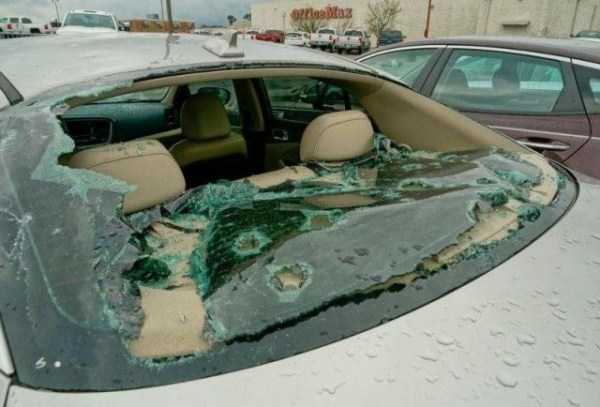In the competitive landscape of modern business, protecting your assets is crucial for long-term success and stability. Among the various aspects of risk management, business car insurance often stands as a critical yet sometimes overlooked element. If your business utilizes vehicles for any commercial purpose, securing adequate business car insurance is essential to safeguard against potential financial losses arising from accidents, theft, or other unforeseen events. This specialized insurance policy is tailored to address the unique risks and liabilities associated with commercial vehicle use, offering a robust safety net for your business.
Whether you operate a small delivery service, a construction firm with a fleet of trucks, or a real estate agency requiring agents to travel to various properties, your vehicles are indispensable tools. A single incident involving a business car can lead to significant financial repercussions, affecting your profitability, reputation, and overall operational capacity. Business car insurance provides a crucial layer of protection, shielding your business from potentially devastating costs associated with vehicle-related incidents.
This guide aims to provide a comprehensive overview of business car insurance, empowering you with the knowledge necessary to make informed decisions and ensure that your business is adequately protected while on the road.
Understanding the Fundamentals of Business Car Insurance
Business car insurance is a specialized form of auto insurance designed to cover vehicles used for commercial endeavors. Unlike personal auto insurance, which caters to individual and family needs, business car insurance addresses the specific risks and liabilities inherent in commercial vehicle operation. This includes activities such as transporting goods, providing services, or commuting between work sites.
Key Differences Between Personal and Business Car Insurance
Several key distinctions differentiate personal and business car insurance, highlighting the importance of selecting the appropriate policy for your specific needs:
Coverage Limits: Business car insurance typically offers higher coverage limits compared to personal auto insurance due to the increased potential for financial exposure in commercial settings.
Types of Vehicles Covered: Business car insurance can encompass a broader spectrum of vehicles, including cars, trucks, vans, and specialized commercial vehicles designed for specific business purposes.
Usage: Personal auto insurance is intended for personal use, while business car insurance is designed for vehicles utilized for commercial activities, such as deliveries, transportation services, or employee commuting.
Additional Coverages: Business car insurance often includes specialized coverages not typically found in personal policies, such as commercial liability coverage, hired and non-owned auto coverage, and equipment coverage.
Types of Business Car Insurance Coverage

Business car insurance policies typically offer a range of coverages tailored to protect businesses from various risks. A clear understanding of these different coverage types is crucial for selecting a policy that meets your specific needs.
Liability Coverage:
This is a fundamental component of business car insurance, protecting your business from financial responsibility for injuries or damages caused to others in an accident. It usually includes:Bodily Injury Liability: Covers medical expenses, lost wages, and pain and suffering for individuals injured in an accident involving your business vehicle.
Property Damage Liability: Covers damage to other people’s property, such as vehicles or buildings, caused by your business vehicle.
Collision Coverage:
Collision coverage protects your business vehicle from damage caused by a collision with another vehicle or object, regardless of fault. This helps cover the costs of repairs or replacement.Comprehensive Coverage:
Comprehensive coverage protects your business vehicle from damage caused by events other than collisions, such as theft, vandalism, fire, natural disasters, and falling objects. This provides financial protection against a wider range of potential risks.

Uninsured/Underinsured Motorist Coverage:
This coverage protects your business and its drivers if involved in an accident with a driver who lacks insurance or has insufficient coverage to cover the damages.Medical Payments Coverage:
Medical payments coverage, or MedPay, helps cover medical expenses for your business’s drivers and passengers, regardless of fault.Commercial Liability Coverage:
Also known as general liability insurance, this coverage protects your business from claims of bodily injury or property damage caused by your operations.Hired and Non-Owned Auto Coverage:
This extends liability coverage to vehicles your business hires or leases, as well as vehicles owned by employees but used for business purposes.
Selecting the Right Business Car Insurance Policy

Choosing the right business car insurance policy requires careful evaluation of your specific needs and circumstances.
Assess Your Risks:
Begin by thoroughly assessing the risks associated with your business operations.Determine Coverage Needs:
Based on your risk assessment, determine the types and amounts of coverage you need.Compare Quotes:
Obtain quotes from multiple reputable insurance companies to compare coverage options, premiums, and customer service.Review Policy Documents:
Carefully review the policy documents to understand the terms, conditions, exclusions, and limitations.Update Your Policy:
As your business evolves, ensure that your insurance policy remains adequate.
Managing Your Business Car Insurance
Effective management of your business car insurance is essential to ensure adequate protection and minimize potential costs.
Maintain Accurate Records: Keep detailed records of your vehicles and drivers.
Promote Safe Driving Practices: Implement a comprehensive driver safety program.
Report Accidents Promptly: Report any accidents to your insurance company as soon as possible.
Review Your Policy Annually: Annually review your policy to ensure it still meets your needs.
Communicate with Your Insurance Agent: Maintain open communication with your insurance agent.
By understanding the intricacies of business car insurance and implementing proactive management strategies, you can effectively safeguard your business against the potential financial repercussions of vehicle-related incidents. Investing in the right insurance coverage is a critical step in protecting your assets and ensuring the long-term success of your business.





Leave a Reply